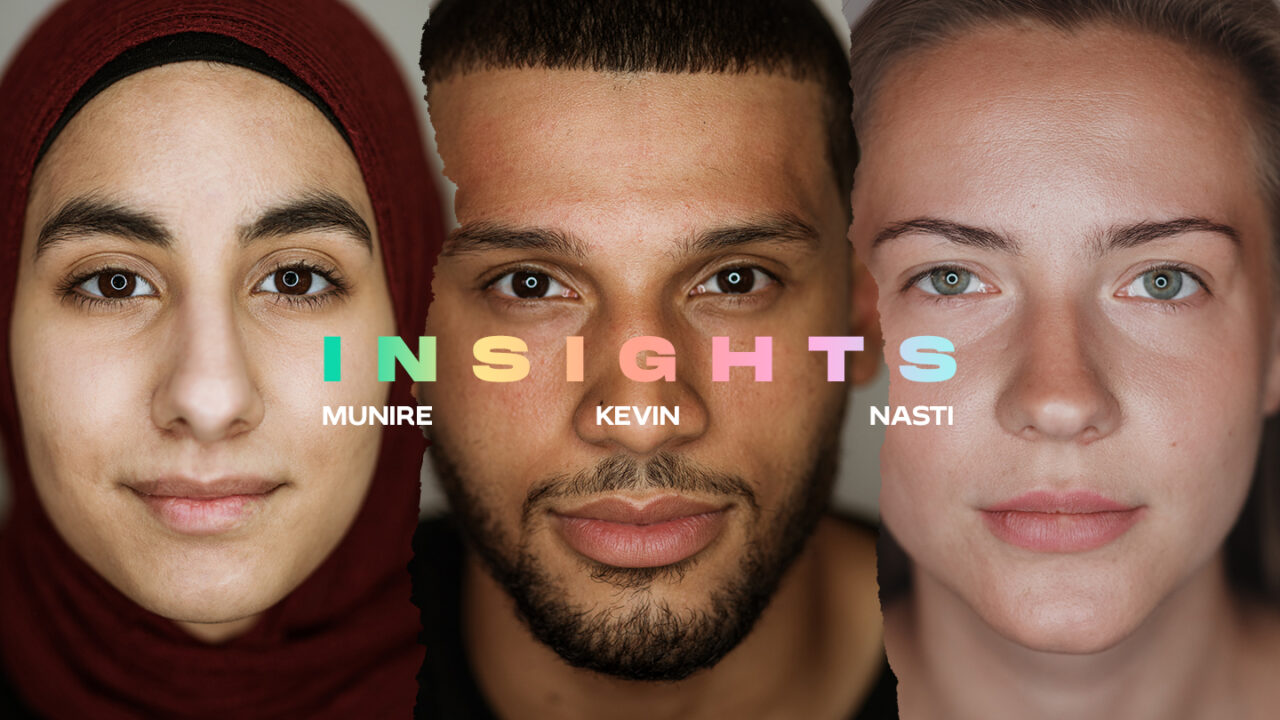As a Berlin sports club, the past months have shown us the importance of re-thinking and re-evaluating the way we engage with each other and what roles our individual lives play on a broader scale. Being built on the foundation of community, we have decided to introduce a new project titled ‘Insights’.
In an on-going interview series, we sit down with our members, give them a platform to speak, and listen to their stories. As we understand this project not only as an interview series, but a dialogue with the community, the importance of listening to one another and keeping the conversation going is a process that we intend to deal with in a transparent manner. So far this new journey has not only enabled us to double-check certain dynamics within our microcosm but also strengthened our belief that the stories we tell as a Berlin sports community are a summary of all of the individual stories that we are made of.
While our goal has always been to bring people together, we feel like it is overdue to also address how our community lives different experiences based on their subjective histories. ‘Insights’ is a first step towards embracing these different life-realities and highlight how they collectively form the Braves. This is the fourth round of members that we have sat down with to listen to them.
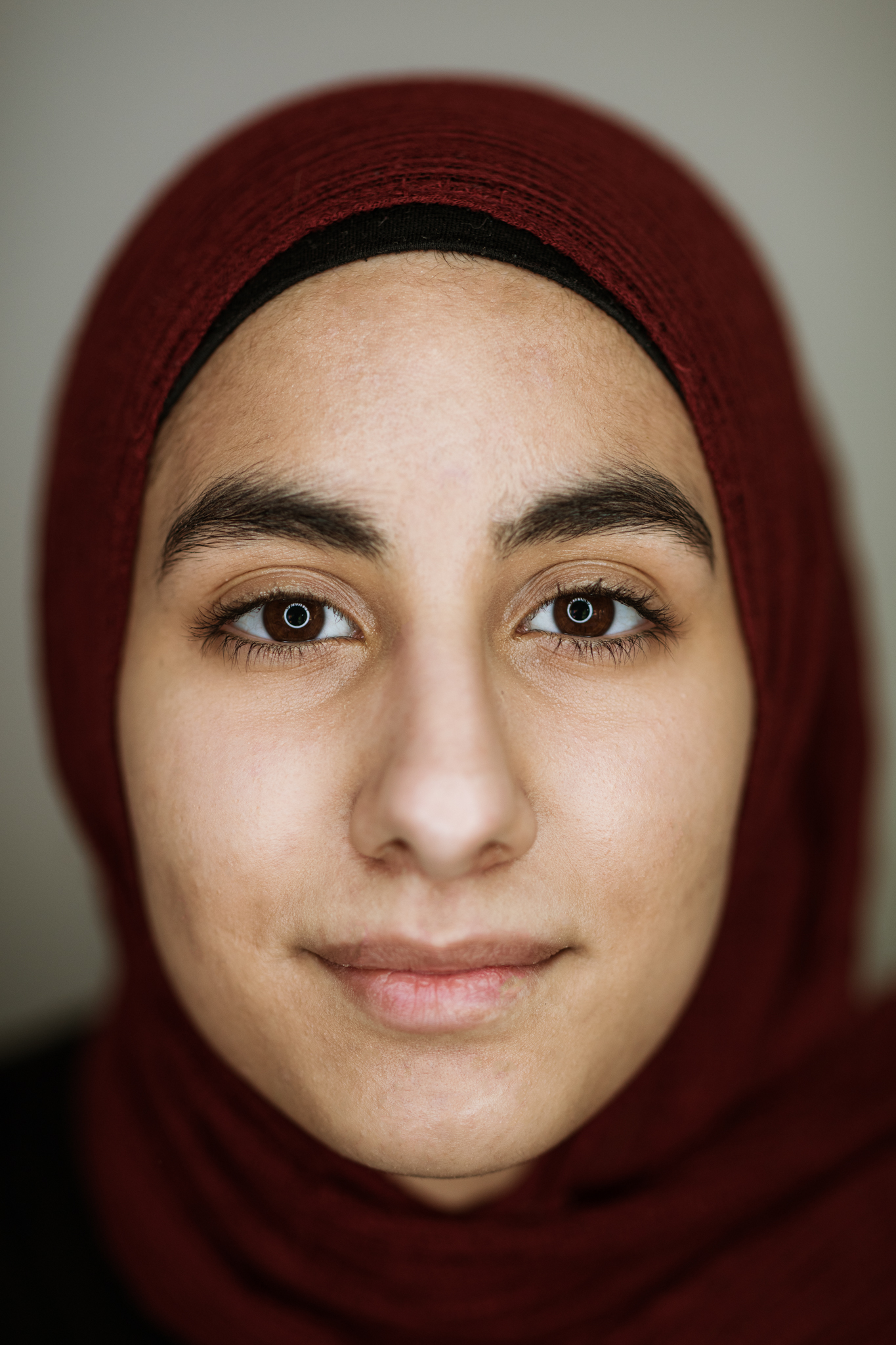
Who are you?
Munire: My name is Munire, I’m 18 years old and I’m graduating high school this year.
Kevin: I’m Kevin, 23 years old – a young daddy from Berlin.
Nasti: My name isNasti and I’m 24 years old. I am a German-Polish student doing my master’s in business management. I was born in Berlin, my parents are from Poland.
What is Berlin for you? Hometown? The City of Choice?
Munire: I moved to Berlin as a baby. When someone asks me about Berlin, I always say “the city never sleeps”. I think Berlin is very vibrant and I love living here.
Kevin: Berlin is my hometown, my base – it always will be. It’s not necessarily my city of choice – there are still other places to explore. I’ve been to Amsterdam several times and could see myself living there for a few years.
Nasti: Berlin is both home and city of choice. I never felt the urge to leave Berlin. Even if I went away, I would always come back.
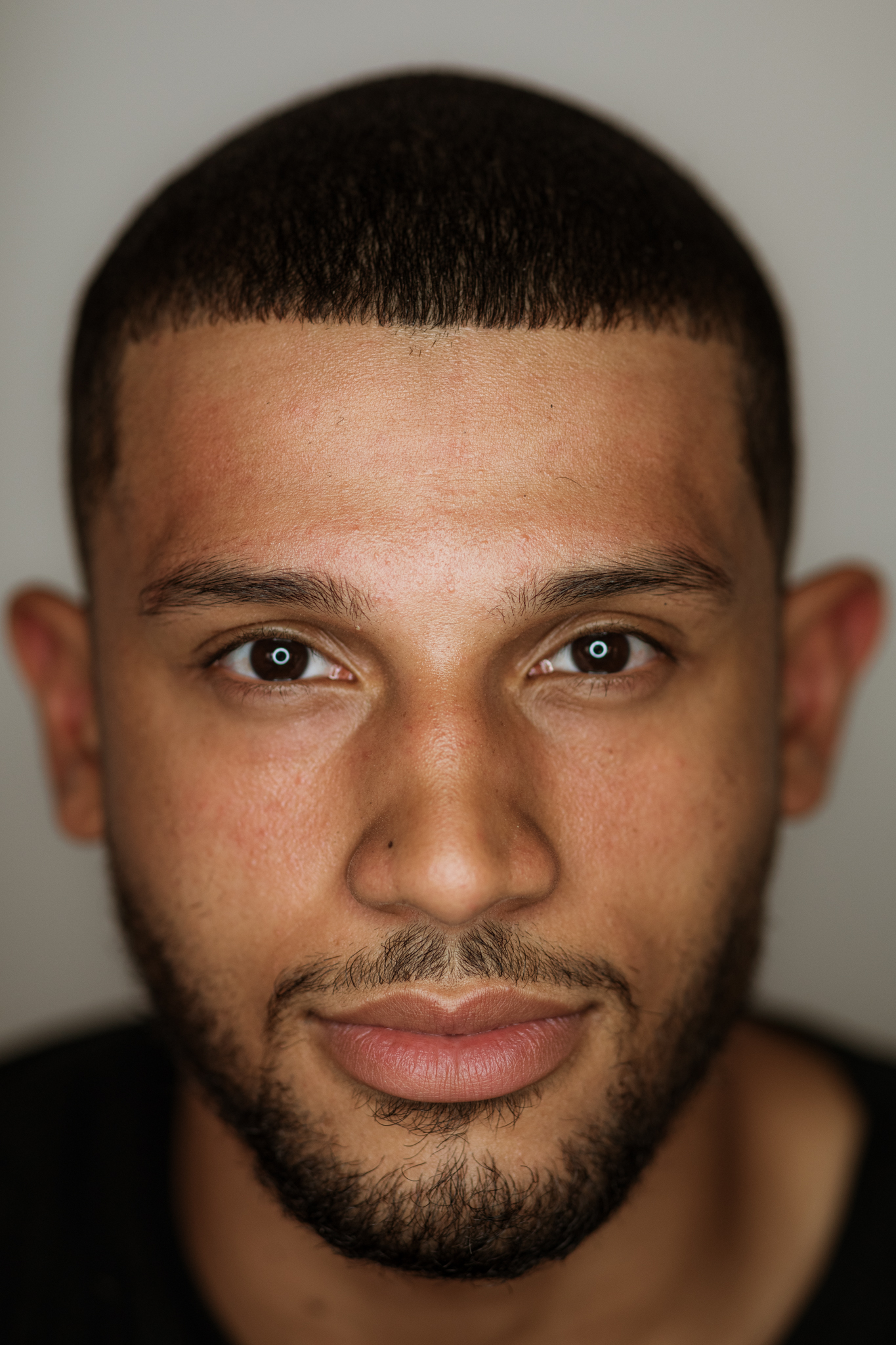
How has living in Berlin impacted your self-understanding?
Nasti: Berlin is very fast-paced. People lose interest fast – may that be in regards to acquaintances or movements like Black Lives Matter. The initial awareness for BLM has died down – people only seem to care when something is “trending”. We need to continue to discuss social injustices in order to bring about structural changes. You have to consistently address certain dynamics, including subliminal racist comments. I think life in Berlin exemplifies that a lot of things are inconsistent. Personally, I have concluded from this inconsistency that I need to use my voice meaningfully and persistently in order to bring about the change that I want to see in the world.
Munire: I think that because I grew up in Berlin, I am very open to new things, to people, and to other cultures. Berlin really inspired me – I love the contrasts between the districts, between wealthy and run-down. I’m a very calm person and because of that I sometimes feel like I’m getting lost in the shuffle.
Kevin: Berlin made me the person who I am today. I lived in Munich for a year when I was 18 and that’s when I grasped the value of living in Berlin. Nowadays, I identify as a Berliner, while not identifying as a German. It makes a big difference – you can be from Berlin and you don’t have to automatically identify with Germany. When I look at other federal states, it becomes obvious how progressive Berlin is especially in terms of multicultural tolerance. The Black Lives Matter movement really showed Berlin’s progressiveness. Solidarity is understood differently here.
Berlin is relatively liberal because it’s a melting pot of polarities – some of the worst right-wing extremists live here, simultaneously there’s a strong left-wing scene. Berlin and my upbringing definitely contributed to me aspiring to be a fair and tolerant person. My social circle also lives by an ethos where you let everyone do what they want. I don’t have to like what others are doing – there has to be room for difference.
Do you perceive yourself differently in varying locations? If so, how?
Munire: I’m Turkish and when I’m in Turkey I’m a completely different person – same goes for when I visit family members in Frankfurt. Even inside of Berlin I notice that I am a different version of myself in Adlershof than in Kreuzberg or Neukölln. How I perceive myself has not only to do with my locality, but also with the people I surround myself with. I really enjoy being around people who are a little older than me. I also realized that I express myself differently depending on my environment. Sometimes I speak a mixture of English and German, in other circles it’s more of a mixture of Turkish and German, and in other circles it’s German only. My location affects who I am.
Kevin: Yes and no. I had a negative experience in Paris, where I arrived at the main train station and three Black people walked past me and out of reflex I nodded at them. I give a friendly nod when I see another Black person in Berlin. To show that I see them and that we are connected in a way. In Paris, my nod led to an argument because the guys thought I was trying to mess with them. That experience really hurt me. But at the same time it allowed me to understand that the connectedness amongst the Black community is different than in Berlin.
Traveling to Ghana was also a nice, but eye-opening experience. For Ghanian people I am white. When I was in Ghana for the first time, I was really offended by the fact that people were calling me ‘Obroni‘ all the time. Over time, I realized that I am white for Ghanian people because Europeans are white in their eyes. Every time I’m there, it makes me uncomfortable that I am admired for my light skin. Somehow it fascinates them. It’s a shame that in Ghana you are adored for lighter skin, and when you come to Europe your dark skin triggers hatred. I talked to Ghanaians about this dynamic and they couldn’t imagine that the same skin that fascinates them doesn’t necessarily make my life in Europe any easier.
Nasti: Definitely. In Poland, I am perceived as the German whose parents emigrated. In Germany, I am the Polish girl whose parents immigrated. I am very grateful to have grown up bilingually and to be able to call two places in this world my home. I’ve noticed that my Polish used to be better. This affects my personality to a certain extent. When I speak Polish, I come across as very reserved and shy. But that’s actually only because I can’t express myself as eloquently as I can in German. In Poland, I’m more of an observing listener, while in Germany I’m the one that keeps the conversation going.
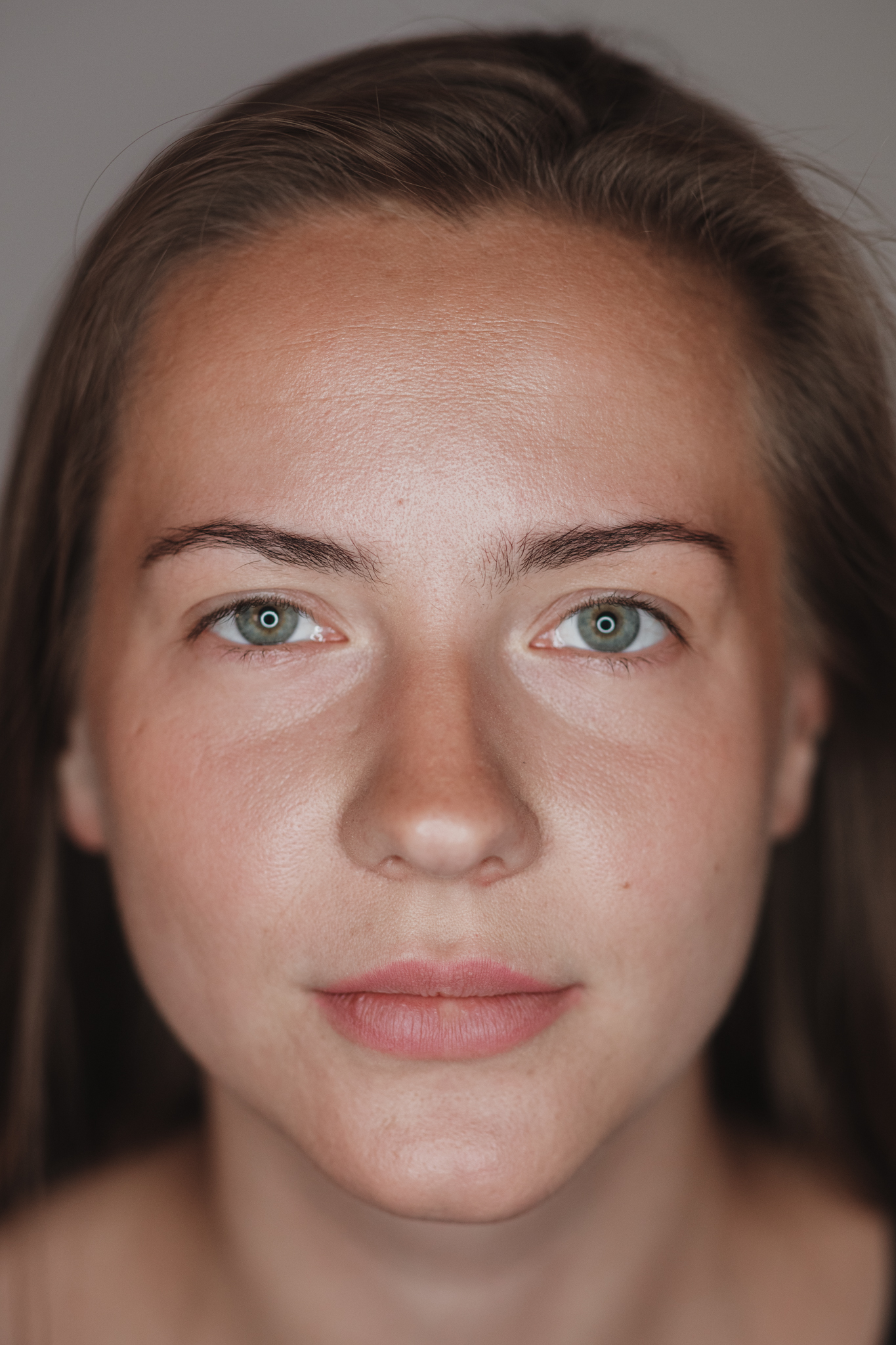
What‘s your definition of community? What’s the power of Community?
Kevin: People with whom you feel a certain familiarity – a connection.
The power of community is that collectively you can achieve more than on your own. Sometimes people forget that community is built on the notion of giving without expecting to receive anything in return. Community can teach you how to give without the intent of profit.
Munire: Community is pluralism. It’s a space where people, whose paths haven’t crossed yet, meet and where they form a connection.
The power of community is that you have the ability to change things for the better.
Nasti: Community is a chosen family. The fascinating thing about community is that it unites people who often have very divergent lives – so different that you can learn from each other, experience new things together, challenge each other and have adventures together.
The power of the community is support, honesty, loyalty, and integrity. I am grateful for everyone who appreciates these values. I think that many people underestimate how important it is to look out for one another and empower others.
How do you perceive your role within communities?
Munire: My role changes depending on the community I’m in. I am either the care-taker or the motivator. Within the realm of sports I see myself as the motivator. I like to support and push people – collectively reaching goals makes me feel empowered. I’m rather quiet in the Braves community. I am one of the youngest ones and still finding my way into the circle. I go pretty unnoticed apart from the fact that I’m the only one wearing a hijab.
Kevin: I am part of different communities and I assume different roles in every community. The Braves are a good example of how my role within a community is constantly changing. Four years ago I was very active but right now I’m really busy with Bipolar, which in turn means that I don’t take as much self-initiative in organizing things for the Braves as before. I represent the Braves with pride – the community is a part of me and I belong to the community.
Within Bipolar, I’m like a community manager. I have a form of responsibility that is new to me. I think a lot more about how I can connect people better and make them happy.
Nasti: I’m good at making people have a good time and I think that’s my role in the community. I am a very happy person, but at the same time I understand the necessity of having serious conversations.
What kind of people would you like to surround yourself with?
Nasti: Loyal people. People who stand up for the right thing and recognize what’s important in life. I value integrity – you’ve got to turn your words into actions. I think it’s important to make others feel seen and heard.
Kevin: Not everyone around me has to be a go-getter, but people have to be compatible with my vibe. “Good vibes only” is my credo. Sometimes I test people and deliberately say the opposite of my point of view to see how the other person reacts. I appreciate people who have their own perspective.
Munire: People who are in love with life. People who try to make a difference. I know a lot of people who have had a lot of opportunities from birth on. It’s a bit easier for them because their privileges equipped them with a head-start in life. I am inspired by people who have built something for themselves.
How can your role in a community be improved? How can you create self-improvement through the community?
Kevin: Who I am today is the result of being part of different communities. I slipped into communities and was able to ask a lot of questions and have eventually become someone that I like. The road to self-improvement is pretty simple – you either want it or you don’t. You either accept external input and try different things or you don’t. Within a community you can observe a manifoldness of life-realities and draw values from them. I tried so many things with the Braves. I always felt comfortable because I was surrounded by people who made me feel secure.
When it comes to my own role, sometimes I was insensitive and made jokes that I didn’t think through. At times I said things too quickly and I wasn’t aware of the consequences. I would like to be more serious. It’s not just fun and games, but sometimes you gotta put work into the things you love. I have to find a better balance between what is serious work and what is fun and games.
Munire: I would like to be more organized. Lately, I have been consciously surrounding myself with people who are organized. When I think about who I want to be in five years, there are so many roles I want to assume. I want to be creative and a motivator. It suits me. I don’t have just one role that I want to focus on, but intend to gradually develop these different sides of myself.
Nasti: I think that I should listen more because I often get things wrong. For example, I wanted to use Border to Hel as an opportunity to draw attention to BLM. Unfortunately, there were concerns that it would be out of context. I got upset about that, because I don’t think there has to be a specific reason to address the topic. I realized that I need to be more patient and that sometimes things need to be contextually embedded. Within a community you have a lot of chances to reflect on yourself. This creates a lot of potential for self-improvement.
What needs to change in our community? How can you bring about change in our community?
Kevin: I think right now is a phase where many are trying to find their own path. Many of us have started their own projects and that has split the community a bit. But I’m sure we will all reconnect once the pandemic is over.
The most direct impact I can have as a member is to motivate my immediate circle to show up more again. There are enough possibilities and I should actually initiate more participation. I can see myself organizing something for the people who are not that serious about running but still want to spend time together and do sports.
Nasti: Communication is crucial. This interview series is very relevant because it gives everyone the platform to talk. But I also think that we should talk to each other more offline. We addressed racism during some meet-ups with the running group. We exchanged ideas and tried to be there for each other. That’s a good start and I think it should be an integral part of our community. The Braves have to be a safe space in which one can speak openly. In which it is normal to talk about social injustices.
I can also see myself initiating this form of exchange. There are so many ways to initiate more serious conversations – for example after the training sessions. It’s important to talk about things that affect us individually and to understand the emotional worlds of others. That’s what makes a community; you empower and listen to each other.
What would you like to be recognized for?
Munire: I would like to be recognized for my good intentions. People tend to perceive me as naive or over-the-top, but nobody recognizes the side of myself that revolves about doing something good and standing up for others. I laugh and smile a lot, but nobody takes me seriously when I bring up a serious subject. I would like to be heard more; be taken more seriously when I have something to say.
Kevin: I used to have a nickname that really appealed to me – Captain K-Love. This name reflects how I want to be seen. I have a great woman and a great child by my side and the two of them bring out the best in me. If I could choose, I would love to be someone who makes others feel good, someone to have a good time with. I actually want to be the personification of “Good Vibes Only”.
Nasti: I want people to know that they can count on my loyalty and support. I also hope that I can empower and encourage people with a positive outlook on life.
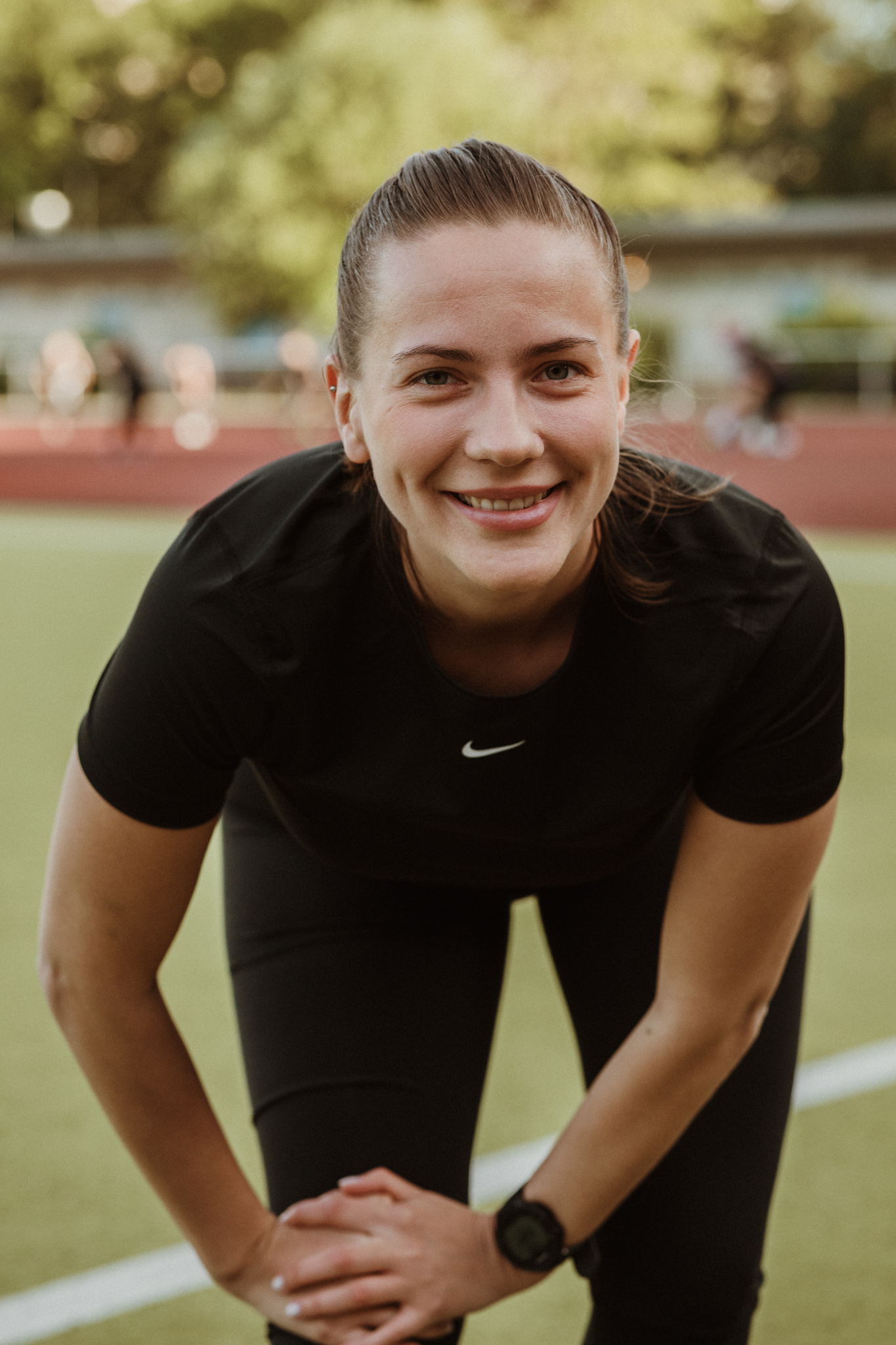
How would you like to use your voice?
Munire: I am particularly concerned about the banning of hijabs and Black Lives Matter. As I wear a hijab myself, this topic naturally affects me. Black Lives Matter also touches me. Although I am not affected by anti-Black racism, it concerns us all. I try to draw attention to these issues – I would like to talk more about them and make people understand that you cannot ignore these issues just because you are not affected by them yourself. As long as people don’t feel like these issues concern them, they do not take them seriously. Everyone cracks jokes about Black people, Muslims, Asians – people tend to be insensitive and tactless. I don’t want to judge anyone by their appearance or social status – for me, it’s about a person’s character.
Kevin: I try to influence my immediate environment and initiate discussions about social issues. Although at some point in the past I understood that the world we live in is a broken one, this understanding has multiplied since my daughter was born. Since then I’ve been paying more attention to social circumstances. Before she was born, I would sometimes sit at home and wonder into what kind of a world I was bringing new life into. I feel obliged to change as much I can now that she’s here.
The other day I was at the supermarket and overheard an argument between a guy and the cashier. He spoke to her in English and she only answered him in German. It was about the fact that he didn’t have enough cash and wanted to pay the rest of the bill by card. The woman at the checkout insisted that splitting the bill was not an option. She told him to put back his groceries and leave. So I got involved and asked how much money he was missing – he was short 1€. I couldn’t believe it. The cashier’s behaviour didn’t even shock me as much. For me, it was just really upsetting to witness the ignorance of the people standing in line behind the guy – everyone just stared. They argued about 1€ and no one had the guts to get involved.
I then addressed the people queuing and asked why no one intervened – everyone just looked the other way and pretended not to hear me. This incident proved to me once again that you have to confront people about their wrongdoings. Maybe 10 people in line wondered what was wrong with me. But there was probably also someone there who ended up feeling bad about their lack of action. Someone who realized that they should act differently next time. I think you have to use your voice in every area of life. When you see some guys hollering at a woman at the subway station, you have to step in, get everyone’s attention, and make the guys feel disgusted about their own behavior. You have to use the voice you have in your environment.
How are you planning to use your voice to bring about change and empower others and yourself?
Nasti: In high school, I witnessed a friend of mine being attacked with racist slurs. That incident really opened my eyes. I wanted to actively fight racism after this formative experience. I understood that I have to make use of my own privileges and utilize my voice. In retrospect, it’s shocking that it took me so long to realize that racism is a thing. In a predominantly white society, I am certainly not the only one who develops an awareness of the prevailing racism at a late stage, which is why it is all the more important to me to keep the conversation going.
Structural racism is so deeply anchored that you have to fight forever to make sure something changes. One cannot in a short period of time change a system that has permeated all layers of social interaction for centuries. I am currently trying to raise money for foundations dedicated to anti-racism. I think everyone has to find their place and way to draw attention to certain issues.
Munire: I always try to look at all sides of a story before I come to a conclusion. Until a few years ago I was a very quiet, shy girl and from one day to the other I grew out of this role. One of my teachers really supported me in using my voice. He taught me to always stand up for myself. You can judge people based on the picture you have of them, or you can try to understand what they feel and try to see the complex structures that people are made of. I would like to initiate a project, or invest in a project, to help others as soon as I earn money. There are infinite ways to make this world a better place.
Kevin: The current events have deeply shaken up my spirit. Not a day goes by where I don’t feel angry with the world at some level. Especially when I watch videos I feel very helpless. I don’t have a master plan yet – I’m figuring things out for myself. There is no plan of action, but I am open for anything that promotes social equality.
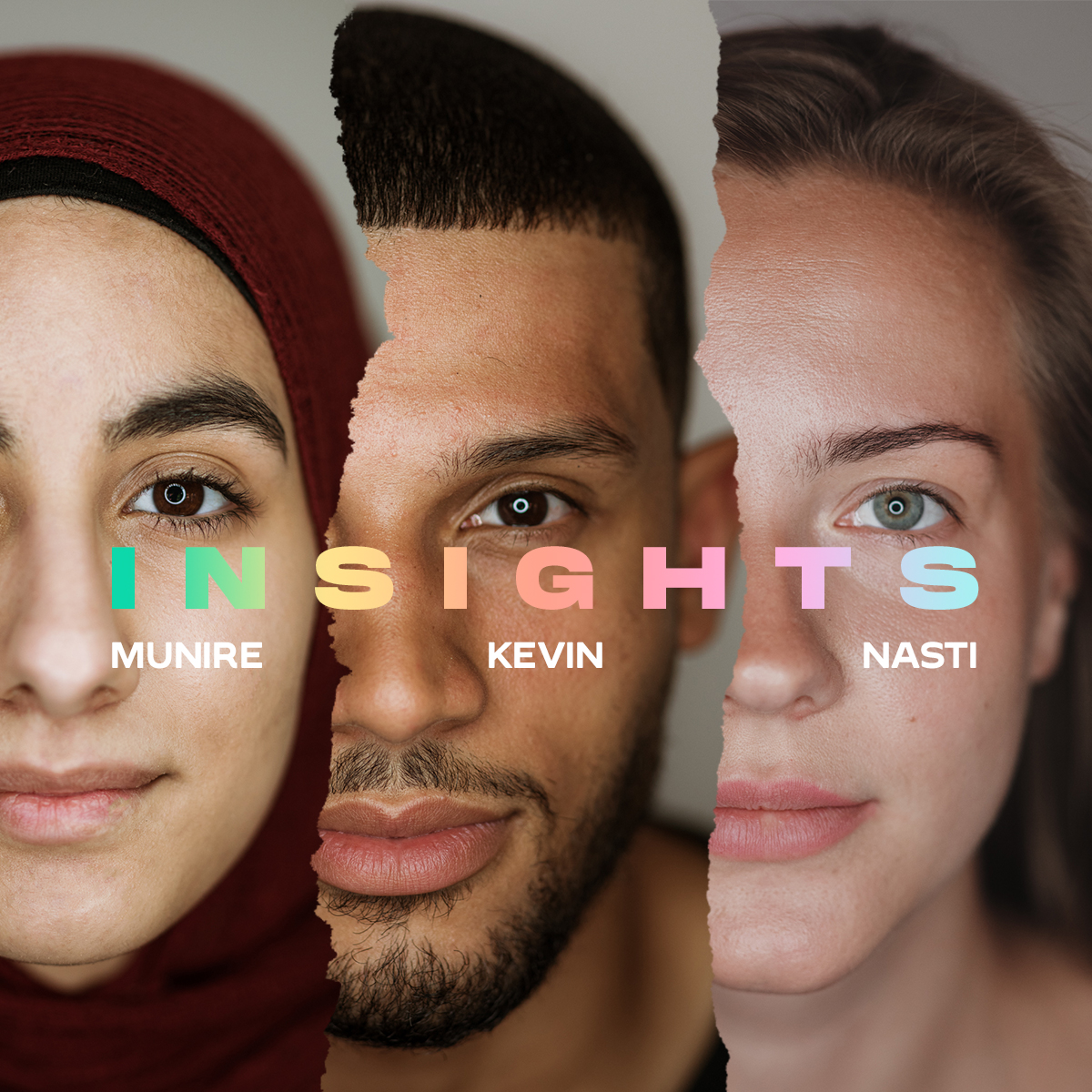
Whom/what community would you like to uplift?
Munire: The overlooked ones. If I relate it to Berlin, then I would focus on the people who grow up in Kreuzberg or Neukölln. I have the impression that these people are met with more prejudice than others because of their looks or educational background. I would like to support this community, but also people who are in need in other parts of the world – be it war zones or very poor regions.
Nasti: People affected by anti-Black racism. I read something the other day that really resonated with me: “being actively anti-racist is not a sprint, but a lifelong marathon”. I want to counteract racism whenever and wherever I can. You’re enver done learning about it, and I also think that many of us are at least subliminally racist. It takes time to unlearn these socialized structures.
Kevin: I think it is difficult to stand up for communities that you are not part of, or for whose reality you have not been sensitized yet. After I learned more about the struggles Black womxn, I realized that I need to educate myself about the realities of this community. I am trying my best to be more aware. I try to pay more attention to certain oppressive structures in my surroundings. Colorism in particular is a topic that opened my eyes. I, too, have internalized racist stigmas – I remember 16 years old me saying “I don’t like Black women”. So first I have to find these things in myself and work on them before I can approach others and try to change and educate them.
Colorism is a topic that is so complex. Trigger warning. During my puberty my mindset was something like this: My mom is white and my dad is Black and I was primarily raised by my mom and although I had a lot of access to the Ghanian community, there was of course a phase in which I questioned my own identity. Am I German, am I not German?
There were some incidents in which I somehow found it hard to fully connect with the Black community because I felt like I didn’t “fully belong” – as though I was missing the ability to fully identify with my Blackness. As a result, I developed certain insecurity, which felt like a lack of belonging, and this dynamic influenced my image of Black women at the time. This insecurity was amplified by the social stigmas I found myself in – I am socialized in a predominantly white society – in which I was given a certain value due to the fact that I am light-skinned and not dark-skinned. “Light skin is nice skin”. And that’s what led me to say, “Black girls are not my type”. I even depersonalized Black women to a certain extent. But that changed the older I got.
Over time, I noticed that this attitude is actually really twisted and racist. It just doesn’t make sense to think like that – it’s a form of internalized racism that resulted from the experiences I had made as a Black person in a predominantly white society.
What really bothers me these days is that there seems to be a competition about how “woke” you are. I find that problematic because it defeats the fact that we are all constantly learning. Just because I haven’t shown enough awareness in a situation doesn’t mean I’m against it. There are so many people who say that they are standing for something, but I keep asking myself, are you really changing a situation simply because you are saying that you stand for something? Actions speak louder than words.
